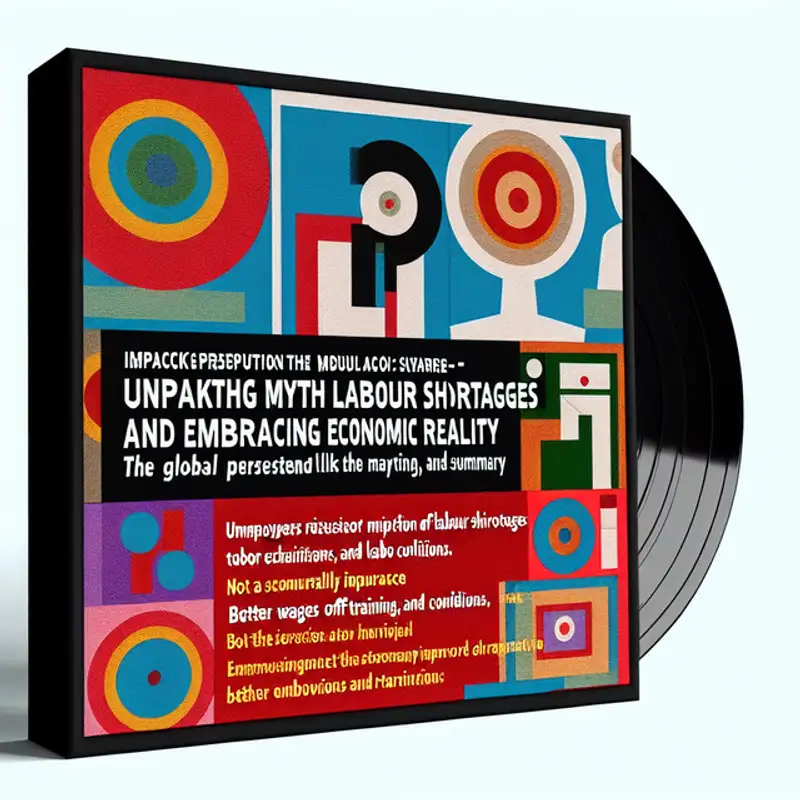 Episode
Episode
· 02:47
🎙️ Podcast Episode Summary: “Why 'Labour Shortages' Don’t Really Exist”
Ah, the timeless complaint of business owners: “We just can’t find the right people!” Whether you're tuning in from bustling New York or scenic Naples, you’ve probably heard—or said—something similar. But according to a sharp take from The Economist, the phrase "labour shortage" is mostly economic fiction. Businesses love to toss it around when they’re unwilling to raise wages, train workers, or adjust their hiring expectations. As the article points out, "Use the term, and you are almost always a bad economist or a special pleader." What’s really happening? Market dynamics are doing their thing—when talent’s scarce, the price (wages) should rise. But if employers resist that, they’re not facing a shortage; they’re facing reality. Let's break it down.
📌 Key Points:
💬 Notable Quote: “Use the term, and you are almost always a bad economist or a special pleader.”
✅ Bottom Line: The so-called “labour shortage” is more about wages, incentives, and flexibility than a missing workforce—it’s not that the talent isn’t out there, it’s that employers might need to change how they’re looking.
📚 Bonus Context:
This viewpoint aligns with long-standing labor market theories from economists like Joan Robinson and Milton Friedman, who emphasized flexibility in wages and job conditions over rigid assumptions about shortages.
🎧 Stay tuned for more myth-busting takes on what’s really driving the global economy!
Link to Article
Listen to jawbreaker.io using one of many popular podcasting apps or directories.